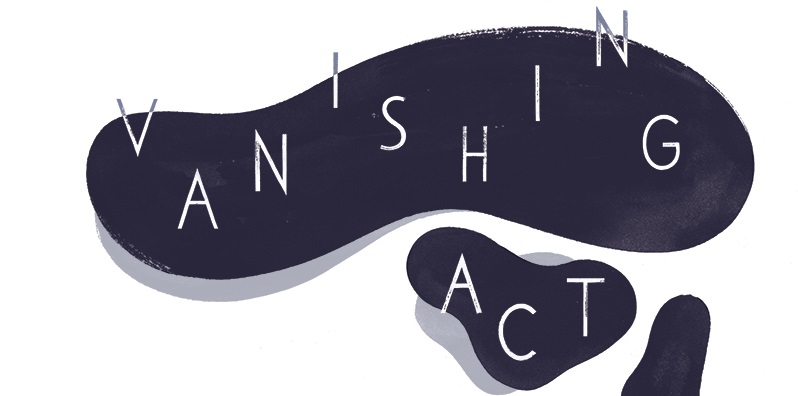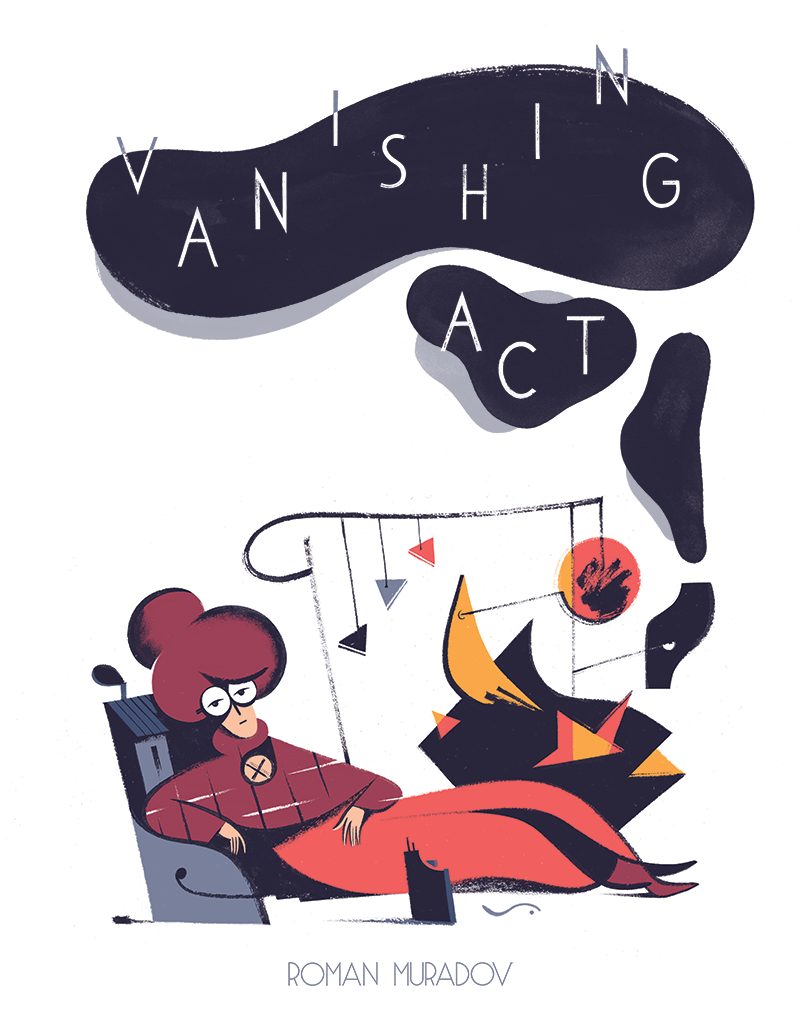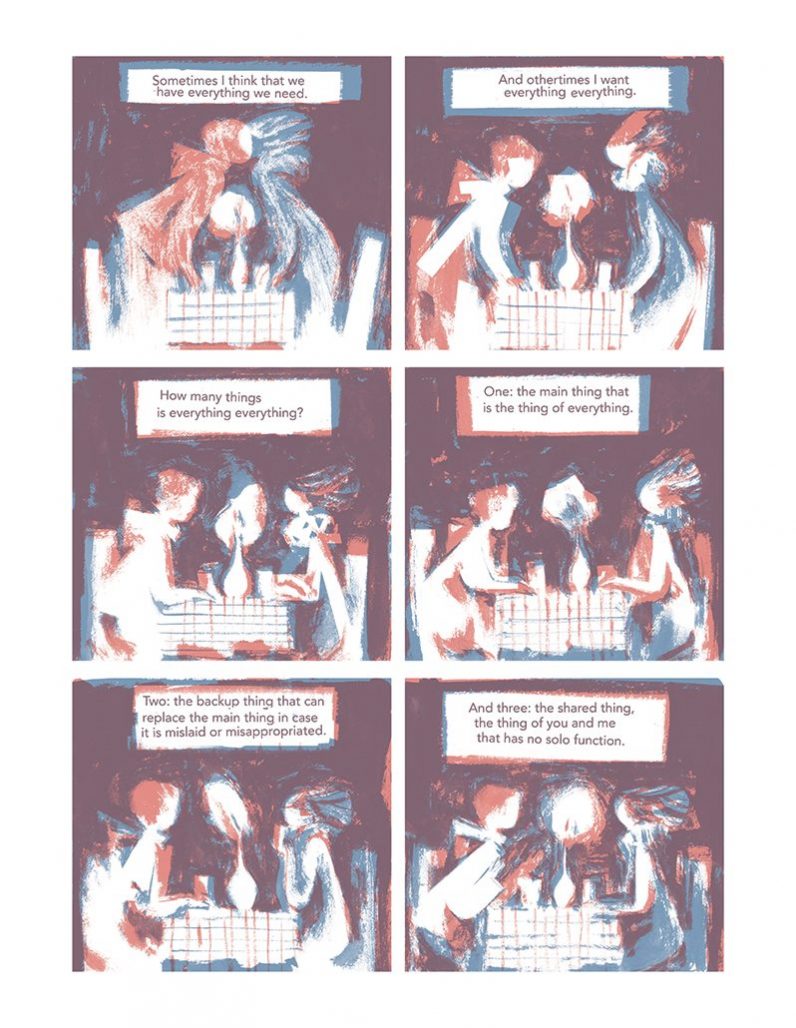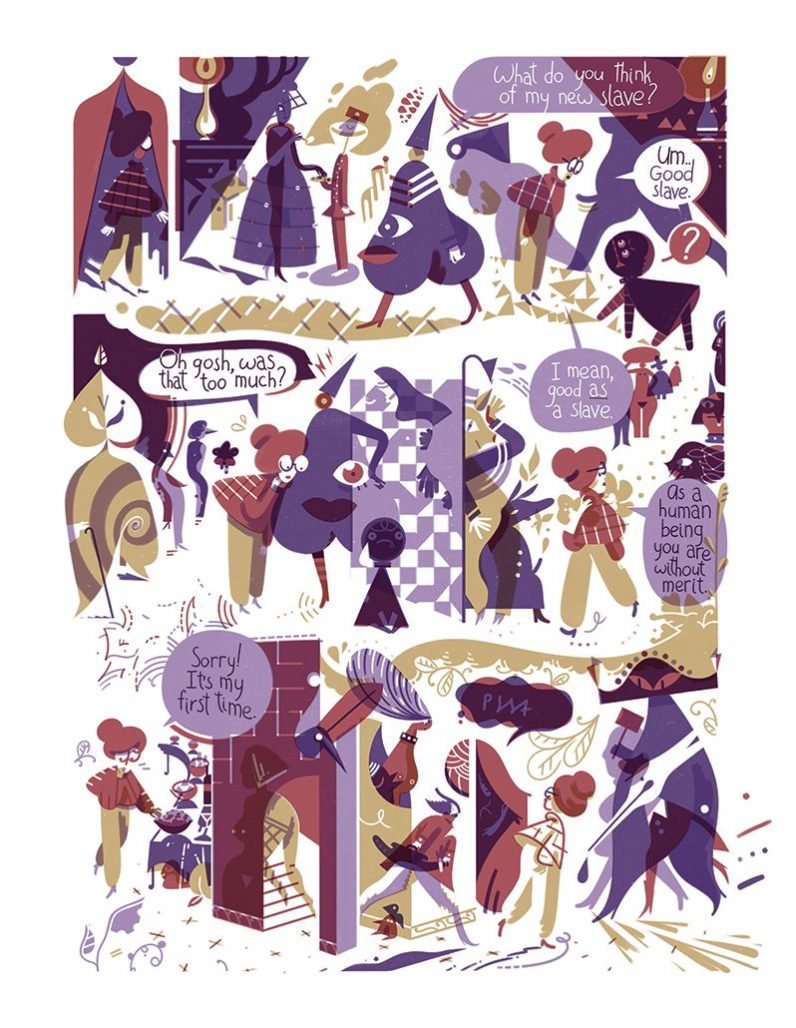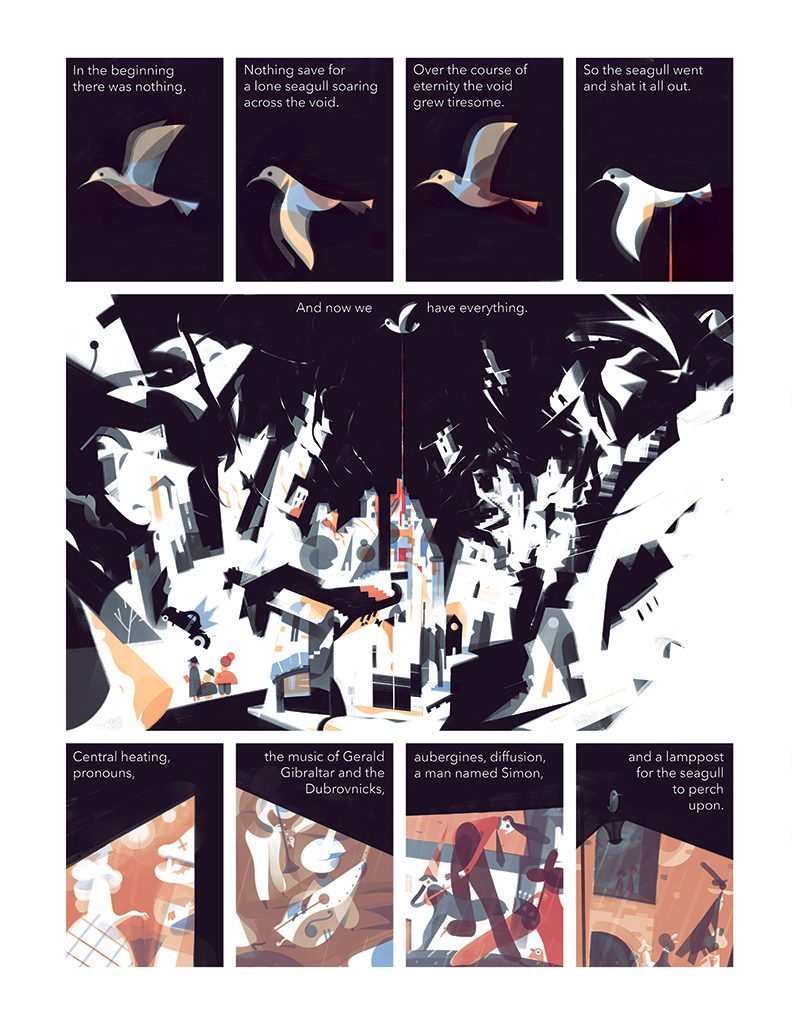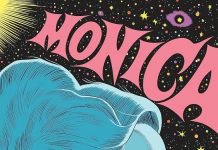There are comic books that want to pretend they are movies or television show. Roman Muradov’s latest graphic novel Vanishing Act wants to be nothing less than a stage play. A long, complicated, over-stuffed thirteen act play with recurring characters, different stage lighting and costume for every act, narration, tones, and even a dance number. Vanishing Act is another visually stunning work by Roman Muradov that lacks a certain depth when it comes to the story. For as strong as the visual aspects are, his stories feel terribly banal, clichéd and full of platitudes. I’ve been disappointed in his work before. I thought his Retrofit Comic Picnic Ruined was unbearable, but I kept hoping that his work will blossom into a more appealing, or perhaps a less self-centered navel gazing work about the plight of the artist. Vanishing Act is unfortunately not that book.
Vanishing Act contains thirteen individual story taking place over the same evening involving a rotating cast of characters. It’s a relatively chronological story about a group of actors, writers and production folks working on a sitcom television series who are invited to a party that they end up never going to. They tend to talk about the nature of art, the drive and the contradiction at the very heart of creation. It was a surprisingly frustrating read as most of the character voices tended to get lost in a cacophony of sameness. There’s long soliloquies about semiotics, symbols, art-making, the futility of trying to create meanings. Like the title implies, Vanishing Act focus on the vanishing and the act. Several characters are looking for each other or an owner loses his dog. These elements drive the story, when there is a story to move forward.
The main issue I saw in Vanishing Act was its lack of focus, both within the story and the illustration. The huge cast of character shouldn’t be an issue, but each chapter is drawn so drastically different that they are nearly impossible to tell apart. A character you meet in a chapter will not only be drawn in a cubism-lite style two chapters later, but he’ll also be surrounded with five more characters from random chapters you’ve read before, all of whom you have to identify. There’s a handy chart describing the scene, where it takes place (sometimes in multiple locations complicating matters further) and includes the characters contained in the chapter. I had to rely on this for every chapter, often even having to go back to the character breakdown list provided early on, as well as referring to the map explaining where things were in the city. Adding to the confusion is the fact that their voice never felt unique or easy to parse among the characters present. It was a confusing chore to get through. And to make matters worse, each chapter tells a different, tangentially related story, sometimes having nothing to do with the previous chapters. I felt like several different had been mixed together and I was slowly working my way through reassembling them. It was not a particularly fun endeavour.
In addition to these issues, while the characters wax poetic about the nature of art and what it should be for, there seems to be several contradictions with the intent of the book and the style of it. There’s a striking line in which a character states that “In the process of artmaking, the artist must become redundant, and the artwork a mere byproduct“. The implications being that the artist should erase himself behind his work. The work should speak for itself. The problem arises since a mere look at the book, and it’s 13 different styles, maps indicating where each chapter takes place, quirky page explaining “how-to read this book”, almost begs for us to consider Muradov, the artist himself, rather than the book, or the process. It becomes a very self-centered book in the end, a show of all the artistic ability of Muradov himself first and foremost. It felt almost pointless to keep track of what was happening in the book as it never seemed to be the point of Vanishing Act, it seemed like a mere showcase of Muradov’s competency.
In the end, this book also provided me with a fantastic chance at introspection. I felt beaten and bruised, wondering whether my depression had finally gotten the better of me. Have I finally gone to a point where I can’t read? Why am I trying to parse this purposefully obtuse book? It’s rare that I dislike a book to the point of feeling like it’s an absolute slog to get through. It’s disheartening to see such an incredible display of artistry ultimately being about such a navel-gazing idea, a book about itself, its own importance and the artistic skill of the creator. Those are usually sketchbooks.
It’s true that I didn’t particularly care for Vanishing Act, but I recognize Muradov’s style is undeniably masterful and Vanishing Act is a wonderful showcase of his versatility. I’ll keep reading his work, he’ll make a masterpiece eventually.


